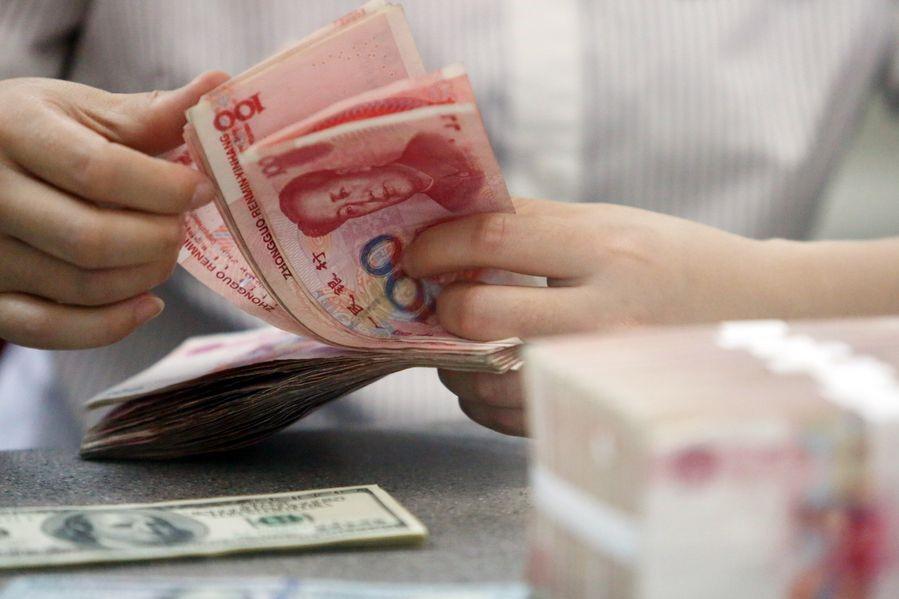
A worker counts Chinese currency renminbi at a bank in Linyi, east China's Shandong province. [Photo/Xinhua]
China may
That said, the country may still reduce the benchmark interest rate for mortgages slightly in the rest of the year if more stimulus is needed to consolidate the property market recovery, they said.
Their comments were in response to the U.S. Federal Reserve's latest policy statement signaling that it may further raise interest rates and keep the rates at a very high level for a longer-than-expected period.
On Wednesday, the Fed decided to maintain the target range for the federal funds rate in the 5.25 to 5.5 percent range, in line with market expectations. What caught analysts' greater attention was the Fed's hint that it may implement another rate hike of 25 basis points by the end of the year and may cut the rates by only 50 basis points in 2024, versus 100 basis points it implied in June.
Shao Yu, chief economist at Orient Securities, said the dollar may retain its strength and weigh on other currencies as the Fed is likely to further increase interest rates and keep them high for a relatively long period to curb stubbornly high inflation.
Following the Fed's hawkish statement, the U.S. dollar Index, which gauges the greenback's value relative to a basket of key currencies, hit a six-month high of 105.69 on Thursday. The onshore renminbi weakened to 7.3097 against the dollar on Thursday, the lowest level since Sept 11, according to market tracker Wind Info.
"China still has room for interest rate cuts as the domestic economic situation remains the key determinant in policymaking, but relative cautiousness (in policy easing) could be seen in order to balance the targets of growth stabilization and foreign exchange rate stability," Shao said.
"If the real economy recovers slower than expected, monetary and fiscal policies may still amplify counter-cyclical adjustments despite the dollar's strength."
Shao's views echoed a central bank official's pledge on Wednesday to beef up support for the economy while stabilizing the renminbi. "Various tools in reserve will be used to improve the supply-demand relationship in the foreign exchange market to resolutely fend off the risk of exchange rate overshooting," said Zou Lan, head of the People's Bank of China's monetary policy department.
Zou said the central bank will keep liquidity ample, lower financing costs of the real economy and encourage financial institutions to reprice outstanding mortgages and support the resolution of local government debt risks.
On Wednesday, the country held the loan prime rates, or market-based benchmark lending rates, unchanged after cutting the reserve requirement ratio on Friday to boost market liquidity. The RRR refers to the proportion of money that lenders must keep as reserves.
Lou Feipeng, a researcher at Postal Savings Bank of China, said the possibility of a cut to the over-five-year LPR is higher than that of a cut to the one-year LPR in the near term as the former serves as a benchmark for mortgage rates and may further decline if the recovery of property demand needs further support.
Yet, the overall likelihood of further LPR cuts could be limited over the rest of the year given commercial banks' squeezed profit margins, Lou said, adding he expects structural monetary tools to be rolled out and aid resolution of local governments' debt risk.
Yi Gang, former governor of the PBOC, wrote in an article published in CPPCC Daily on Tuesday that he would suggest use of structural monetary tools to expand the supply of affordable rental housing.




